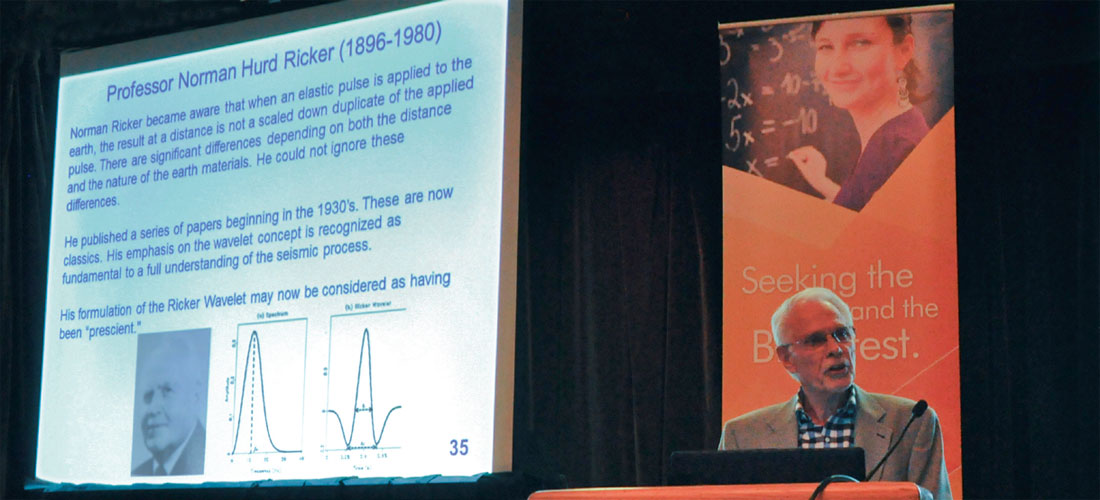Geophysical culture is something I have been thinking about for years. A quick web search on geophysical culture yields no clear definition. It would be easy to write that geophysical culture is the set of values and practices in the geophysical community and leave it at that. But after working around Canada, Singapore and Norway in different roles for different companies, I can easily tell you that geophysical culture changes from place to place. Below, I describe four aspects of Canadian geophysical culture that I think should be highlighted.
An informed culture – Having the proper information to make the correct decisions. This doesn’t mean that we all have to be experts at everything but that we access those who can or should be “guiding” us in our work and that they have knowledge of geophysics, the business impacts on geophysical decisions, an awareness of proper geophysical practice, etc… This may mean consulting the local regulatory body (e.g. APEGA or APEGS) about ethical use of geophysical data. Or consulting with a survey design company to ensure that the seismic data you will be acquiring is useful for AVO analysis. Or talking with the specialist group in your company to see if there is a relation between aeromag anomalies and certain geologic features.
A sharing culture – Willing to share what we’ve learned. There is a well established tradition of this where we will take the time and effort to share our personal experiences. For example, in March’s Technical Luncheon which was just after the CSEG AGM, Dr. Easton Wren talked about his experiences in the oil and gas industry going back 50 years. My favourite part is his recollection of meeting Dr. Norman Ricker (of the Ricker wavelet) at an SEG Convention. For those of you unable to join us, a video of Dr. Easton Wren’s talk will be available on the CSEG website. Another example is the talks at the GeoConvention where we listen to someone relating what they’ve learned, what worked or what didn’t work.
A flexible culture – Being open to change. Over the years, the way we do geophysics has changed. I am fortunate (or unfortunate) to be old enough to remember the days when people had heated debates about the merits of post-stack migration versus pre-stack migration. We don’t have those conversations anymore. We’ve gone on to having heated debates about the merits of pre-stack interpolation as a substitute for denser/finer seismic acquisition. Another interesting trend I have observed is how geophysicists have become more specialized. Back in the old days it wasn’t uncommon for geophysicists to switch from seismic processing to seismic interpretation but today it seems very uncommon. Perhaps it’s an evolution of geophysicists in Canada.
A learning culture – Having the desire to acquire more knowledge and apply it to our daily jobs or duties. Many of us take training courses through internal courses offered within the company or external courses such as those offered by the DoodleTrain. Some of that knowledge we take back to our offices and try using.
There are other aspects of geophysical culture in Canada that could also have been highlighted such as the close ties we maintain with our fellow geologists and engineers, or the strong interconnection of the geophysical community. However, I just wanted to emphasize the four previous points as a reminder of some of the more notable characteristics of Canadian geophysical culture during these uncertain times.

http://cseg.ca/technical/view/the-oil-price-and-seismic-exploration-a-roller-coaster-ride











Share This Column